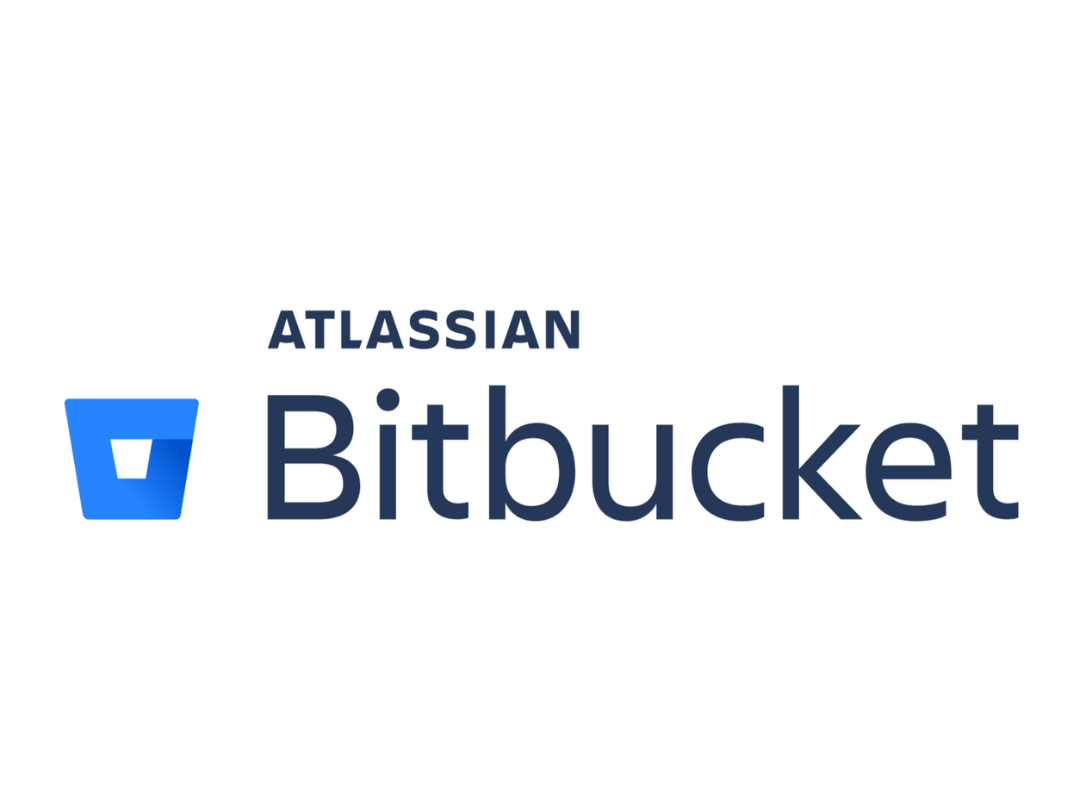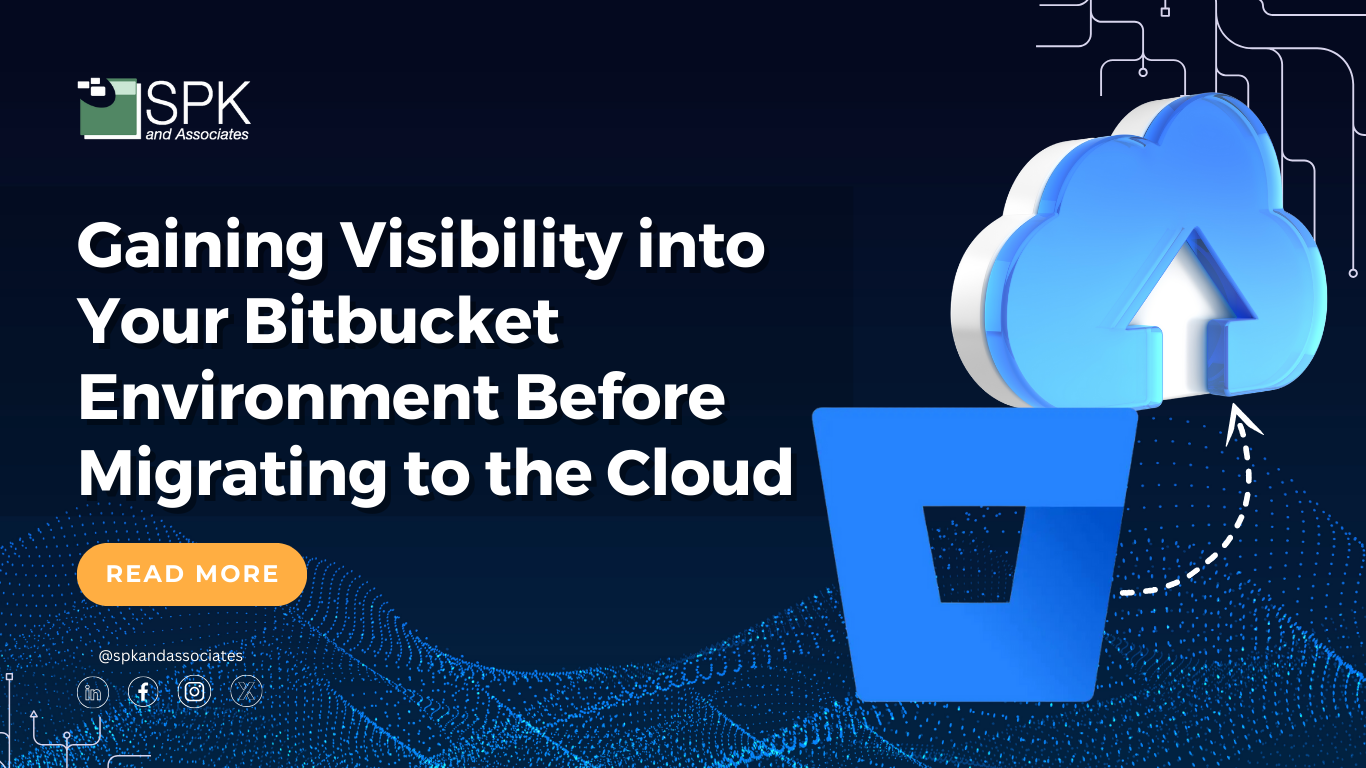Migrating from Bitbucket Server to Bitbucket Cloud is a big step for organizations looking to modernize their development workflows. The process of shifting to Atlassian’s robust cloud offerings is far from straightforward. While Atlassian provides migration scripts, these tools are often insufficient for large and complex environments. At SPK and Associates, we’ve seen firsthand the challenges companies face when planning such migrations. Without visibility into their existing Bitbucket Server environment, organizations risk inefficiencies, incomplete migrations, or compliance issues. Sometimes, a simple comparison of the differences between Bitbucket Data Center and Bitbucket Cloud can be a foundation for understanding these challenges. In this blog, we’ll share insights from a real-world migration we managed, the challenges faced, and how gaining visibility into your Bitbucket environment can make all the difference.
Why Visibility Matters in a Migration
Before performing a cloud migration, you must understand the current state of your Bitbucket Server. You can’t move what you don’t know you have, and for many organizations, this is the primary issue. Without clear visibility, organizations struggle with:

1. Uncertainty about their current setup.
- Our client had questions about their current state, including: “I don’t know how many projects I have in Bitbucket” and “I have one project but didn’t realize it contains 600 repositories”
- These are common statements we hear from clients. Bitbucket Server often grows organically, with teams adding repositories and branches without centralized oversight.
2. Complex permissions management.
- “For every single repo, there may be 1,000 different branches or unique permissions.”
- Permissions on Bitbucket Server can be highly granular, with different settings for each branch. Understanding and replicating these settings in the cloud is critical to maintaining security and compliance.
3. Lack of governance on Configuration Items.
- Some configuration items were specific to one branch, all branches in a repo, or all repos in a project except where an override is specified in the branch.
- There could be a mix of different permissions for project users vs. branch users vs. branch configurations.
4. Limited tooling for analysis.
- Bitbucket Server doesn’t provide comprehensive reports on repositories, permissions, or branch health, and Atlassian’s migration scripts don’t fill this gap.
5. Compliance requirements.
- Organizations in regulated industries (like medical devices or aerospace) need documentation of their current environment for audits. Proving compliance with bodies like the FDA becomes difficult without a snapshot of the state of their Bitbucket environment.
Real-World Bitbucket Challenges and How We Solved Them
When SPK and Associates recently helped a client migrate from Bitbucket Server to Bitbucket Cloud, we faced several challenges. The customer’s environment was large and complex, and Atlassian’s default tools weren’t sufficient. Here’s how we addressed their problems:
Challenge 1: Unknown Number of Projects and Repositories
The client couldn’t say with certainty how many projects or repositories they had in their Bitbucket Server.
Our Solution:
We developed a custom report to inventory every project and repository within their Bitbucket Server. This included:
- Total number of projects and repositories.
- Size of each repository.
- Activity metrics (e.g., last updated date).
With this data, the client could prioritize which projects and repositories to migrate, archiving outdated or inactive ones. Having this information allows engineering leaders to make the proper choices related to tools, as well as ensure the proper timeline and migration paths.

Challenge 2: Overwhelming Number of Project, Repository, and Branch Permissions
Some repositories had thousands of branches, each with different permissions. Managing this manually wasn’t feasible.
Our Solution:
We created a detailed permissions report, mapping out:
- User and group permissions at the project, repository, and branch levels.
- Discrepancies or conflicts in permissions settings.
- Merge strategies and branching models that would be custom for each repo.
- Recommendations for consolidating or simplifying permissions in the cloud.
This allowed the client to clean up unnecessary branches and standardize permissions before migration, reducing complexity in the new environment.
Challenge 3: Lack of Compliance Documentation
The client needed a detailed record of their Bitbucket Server environment for regulatory compliance purposes.
Our Solution:
We generated a comprehensive health report, which included:
- A snapshot of all repositories, permissions, and configurations as of a specific date.
- Evidence to meet audit requirements, including FDA and ISO standards.
This documentation not only ensured compliance but also provided a baseline for validating the success of the migration.

Challenge 4: Business Outcome Concerns
These three challenges drive into the fourth challenge, meeting desire business outcomes. We must determine the general cost of the migration, the timeline, and whether that cost and timeline meet the desired business outcomes for the client. In our specific example, all of these were concerns. This particular client needed to get the migration done as quickly as possible due to a lack of integrations on their Server environment that was causing more and more feature issues to amount. Other considerations include…
- Which projects can be deleted because they are empty?
- Which projects can be deleted because they are old and related to an out-of-support product?
- When was the last modified date of a project (to see if it’s old)?
- What product is the project related to?
- Who is the product owner or expert of each product?
Check out our recent video from Edwin Chung explaining these key considerations.
How SPK and Associates Adds Value to Bitbucket Migrations
At SPK and Associates, we leverage our expertise as an Atlassian Gold Solution Partner to deliver migration services tailored to our clients’ needs. Here’s what sets us apart:
- Custom Tools and Reports for Bitbucket
We build tools to generate insights Atlassian’s scripts can’t provide. These include repository health reports, permission audits, and usage analytics. - Strategic Planning
We help you determine which repositories and projects should move to the cloud, which can be archived, and how to simplify permissions and workflows. - Regulatory Expertise
For organizations in regulated industries, we ensure your Bitbucket environment meets compliance standards and provides documentation for audits. - Seamless Execution
From planning and testing to execution and validation, we manage the entire migration process, ensuring minimal disruption to your teams.
Steps to Prepare for Your Bitbucket Server to Cloud Migration
If you’re planning a migration from Bitbucket Server to Bitbucket Cloud, here’s how you can start:
- Audit Your Environment – Conduct a full inventory of your projects, repositories, and permissions. Identify inactive or outdated repositories for archiving.
- Clean Up Permissions – Simplify and standardize permissions at the repository and branch levels. This will make the migration smoother and reduce post-migration issues.
- Document the Current State – Generate reports that capture the state of your Bitbucket Server environment. This will serve as a reference during migration and for compliance purposes. We’ve seen this lower potential costs, and be more strategic about the plans made for migration.
- Migration Strategies – Determine the right path forward. Now that you’ve got an accurate inventory, consider things like copying git repos, your pull request history, and permissions on repos and projects.
Work with Experts – Partner with an official Atlassian Solution Partner experienced in Atlassian migrations, like SPK and Associates, to navigate the complexities of your migration. You’ll also gain the benefits of communicating with Atlassian through that Solution Partner.


Ready to Migrate from Bitbucket Server to Bitbucket Cloud?
Migrating from Bitbucket Server to Bitbucket Cloud is an opportunity to modernize your development workflows and leverage the benefits of Atlassian’s cloud ecosystem. However, without visibility into your current environment, the migration process can become a logistical nightmare. At SPK and Associates, we help organizations like yours gain the clarity and confidence needed to execute successful migrations. Whether it’s inventorying your repositories, auditing permissions, or meeting compliance requirements, we’re here to ensure your journey to the cloud is smooth and successful. If you are ready to learn how we can help you migrate to Bitbucket Cloud with ease and efficiency, contact us today.







